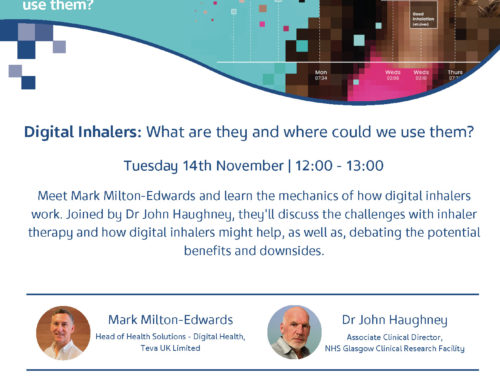The British Heart Foundation (BHF), Macmillan Cancer Support and Nesta are today publishing Reimagining Help: an evidence-based approach to helping people reach their goals,[1] which includes a new Reimagining Help Guide to diversify sources of help outside of hospital, with the aim of enabling people with long term health conditions to take control and ensure they live well.
The ongoing Covid-19 pandemic has highlighted how important it is for people – especially those living with long term conditions – to access help outside traditional health and care settings. Government rules around social distancing and lockdown have presented the opportunity to reimagine what help looks like for millions of people with long term conditions.
While medical experts play an important role in saving lives, people need more than a ‘fix’ to live well in their everyday lives, the report says. The partnership believes that we must move away from the perception that ‘experts’ hold all the power if we are to support people reaching their own goals. By applying insights from behaviour change research to a wide range of organisations and places, Good Help allows people to set and achieve their goals in a way that suits them by drawing on people’s knowledge, relationships, strengths and purpose.
The Reimagining Help Guide identifies eight characteristics of ‘Good Help’[2] which can effectively support practitioners, system leaders and people working in a direct ‘helping’ organisation like the mutual aid groups that are run by volunteers to support local communities through the Covid-19 outbreak. These characteristics include ensuring people have access to the right information at the right time, that they are able to learn new skills in life, and that they are able to manage any setbacks they encounter.
The Reimagining Help Guide is the culmination of a two year-partnership between the three charities, alongside UCL Centre for Behaviour Change and Dartington Service Design Lab. The development of the guide involved working with a group of 30 practitioners and people with lived experience of living with long term health conditions such as cancer and heart and circulatory diseases.
Sally Hughes, Head of Health Services Engagement at the British Heart Foundation, said: “We know how hard it can be for people with long term conditions such as heart failure to get the right kind of help outside of hospital settings. The Covid-19 pandemic has brought this issue into even sharper focus, so the development of this guide is particularly timely.
“Now more than ever, it is vital that patients understand their own condition and feel empowered to make decisions about their own care. If the principles developed for the guide become more widely adopted, it would greatly benefit both patients with long term conditions and also the NHS.”
Sophia Nicola, Primary Care Advisor at Macmillan Cancer Support, said: “Changing the way people can access help and support has the potential to really improve the lives of people with cancer. Empowering people to make decisions and supporting them to manage their condition can yield tangible real-life benefits, such as feeling more in control and better able to cope. We’re really pleased to see the launch of Reimagining Help and we hope to see its principles rolled out more widely in the NHS. Putting knowledge and power in the hands of patients is more important than ever before.”
Esther Flanagan, Senior Programme Manager and Clinical Psychologist at Nesta said: “Whether you are a doctor, nurse, social worker, job coach, housing officer or anyone working in a helping role, the Reimagining Help Guide will help you to build behaviour change principles into your approach to supporting people. We are proud to have simplified decades of behaviour change research and practice into eight characteristics of Good Help, which can be understood and accessed by everyone.”








